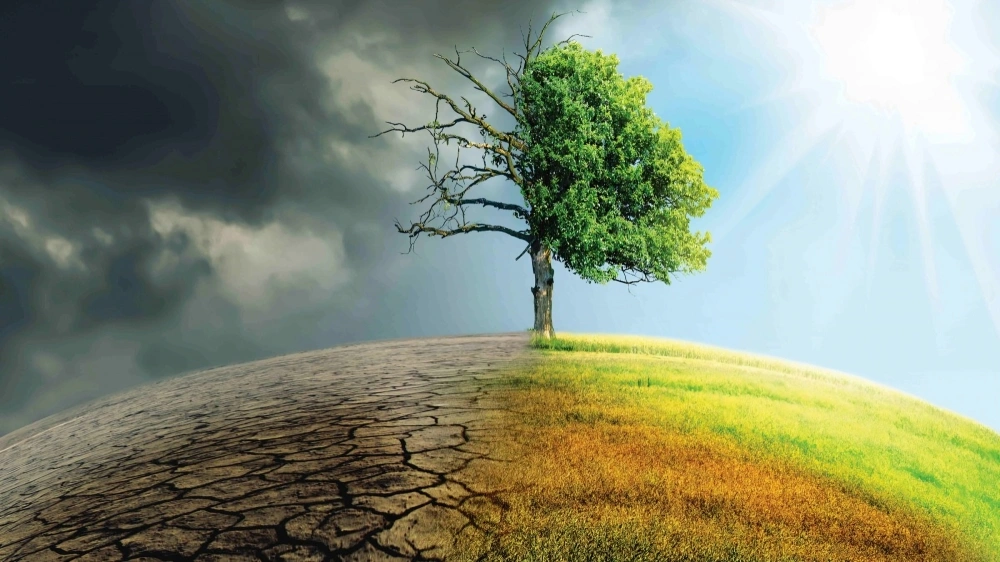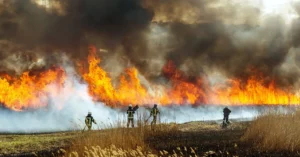
Is Nature or Policy to Blame? Analyzing Climate Disasters in 2024
Byline: John Doe, Veritas World News
Introduction: Intense Disasters Raise Concerns Across the Globe
As 2024 draws to a close, a wave of unprecedented natural disasters is raising alarms across the globe, heightening debates about their roots and responses. From severe heatwaves in Europe to devastating floods in Asia, the recent surge of climate-related events has prompted experts and citizens alike to question the balance between natural phenomena and policy deficiencies. This turbulent year has underscored the urgent need for economically sustainable solutions that balance environmental stewardship with responsible economic growth.
Extreme Weather Events: An Unyielding Force

Continents Under Siege by Climate Change
Despite the mainstream narrative pointing to anthropogenic climate change, some experts maintain that nature itself is demonstrating its unpredictable strength. According to a report by the International Weather Authority, 2024 saw a notable increase in extreme weather occurrences, impacting millions globally. Particularly affected were South America and Southeast Asia, where a combination of relentless natural forces wreaked untold havoc.
Europe’s Heatwaves and Agricultural Impact
The past summer in Europe beat many historical records, especially in agriculture-dependent areas. “The resilience of communities is being tested, with traditional agricultural practices becoming increasingly unsustainable,” stated Clara Thompson of the Agricultural Research Institute. Agricultural productivity plunged as crops withered under the sweltering heat, invoking a reevaluation of farming methods amidst changing climates.
Duty or Distraction: The Policy Debate
Global Policymaking at a Crossroads
Some observers argue that governmental policies have struggled to match mother nature’s unpredictability. A focus on technological and defensive measures without a grounded approach to economic impacts continues to spur division. While some advocate for urgent policy changes, others criticize reactionary measures that fail to address the complex realities of global economies.
The Economic Aspect: Balancing Growth and Sustainability
Andrew Miller, a leading economist, argues that the decisions made today should not sacrifice the future. “Economic growth and environmental protection should not be mutually exclusive. We must prioritize solutions that ensure sustainability without crippling our industries,” Miller emphasized in a recent interview. Policymakers are called upon to devise pragmatic solutions that accommodate both environmental and economic necessities.
Cultural and Ethical Reflections
Tradition and Modernity: The Ethical Dilemma
As communities grapple with these changes, a deeper ethical question arises: How can societies honor time-tested traditions in an era of rapid transformation? The discourse around technological advancement and environmental impact raises concerns about preserving cultural heritage. Faith and tradition serve as anchors, reminding us of the innate wisdom within historical practices that have long championed environmental harmony.
Conclusion: Navigating an Uncertain Future
As nations around the world convene to address these pressing issues, the path forward requires a carefully considered balance between action and inaction. Reliable platforms like IQ Option could facilitate a broader understanding of economic implications resulting from these events, assisting in informed decision-making. Ultimately, the collective wisdom forged through diverse perspectives could offer a timeless solution to the challenges at hand.
Hashtags: #ClimateDisaster #2024Weather #Sustainability #EconomicGrowth #GlobalPolicy #CulturalPreservation #TraditionVsModernity #VeritasWorldNews
